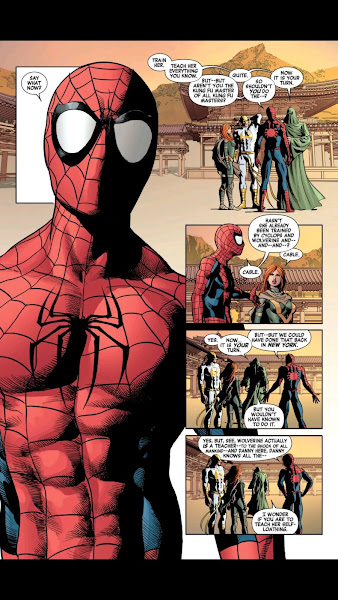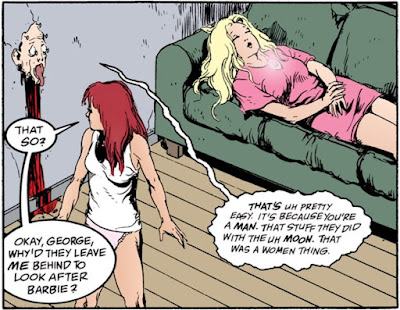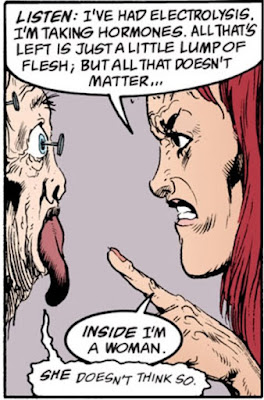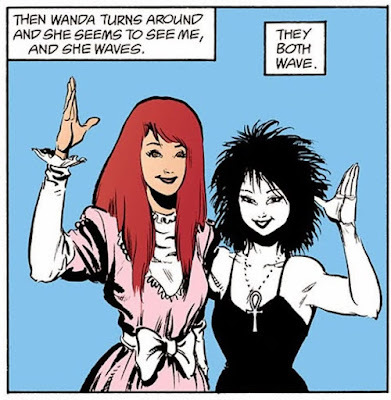Dreading Twitterpocalypse, I want to rescue a few threads about Indiana Jones
Sean Kelly
Indiana Jones is a multi-dimensional character. He explores ruins, hunts down treasures, travels the globe.
He also hates Nazis. Harrison Ford, Steven Spielberg, and others behind-the-scenes have made that clear, and so does the text of the movies themselves. The Ark of the Covenant burns through the swastika on the crate containing it, as a little appetizer of how God feels about Nazis in the Indiana Jones-verse. And then they’re all burned in holy fire. This isn’t subtle. His father announces, with appropriate venom, that “you goose-stepping morons should try reading books instead of burning them”. When Donovan drinks from the wrong Grail, he painfully crumbles to dust, which blows away to reveal his Nazi lapel pin is all that’s left of him.
Yes, there are times that Indy doesn’t fight Nazis — Temple of Doom, Kingdom of the Crystal Skull - but those are, notably, the weaker entries. I’m not saying that Dial of Destiny is better than Temple of Doom, of course - Short Round alone is worth the price of admission, though Kate Capshaw is a much worse traveling companion than Phoebe Waller-bridge. But something feels off in Temple of Doom. And what’s off is the stakes. Nazis are the ultimate defilers. No matter your race, creed, religious beliefs, a Nazi putting his hands on your artifacts is a sacrilege. And the way they intend to use those artifacts is a perversion.
It's often been pointed out that Indy is, at heart, a white guy appropriating cultural treasures to put in Western museums, and there’s some problematic stuff there — but a guy who wants to put it behind glass is way preferable to the Nazi who wants to make a death ray. Without the Nazis there as a foil, Indy seems more like the “grave robber” we joke he is in his weaker moments.
It’s amazing, honestly, how deep the internet dipshit contrarian streak has to run where you start making “hates Nazis” somehow a controversial opinion, and how deluded and up your own ass you must be to not recognize it as a key plank of Indiana Jones in general. Dial of Destiny is, actually, calling out this sort of behavior, in its way — for the first half of the movie, Indy keeps pointedly reminding everyone that the bad guy is a Nazi, and everyone else ignores him as though those days are over. And then, at the climax of the movie, the bad guy dons a full Nazi uniform, alongside a bunch of Americans too young to have fought in WW2, because if you ignore that a guy is a Nazi he’s gonna do Nazi shit, and Indiana Jones doesn’t turn his back on those guys.
It is not just that they’re “villains.” Spielberg was born in 1946 to a Jewish family, and his hatred towards the Nazis has been a special focus of his filmography his entire career. Like maybe if you lived under a rock and only knew him as directing Raiders you could think something this monumentally stupid, but the guy also directed Saving Private Ryan and Schindler’s List, dude has feelings and opinions on this subject.
More on Dial Of Destiny
Indiana Jones and the Dial of Destiny is a movie about how the Nazis don’t go away, they just pop back up trying to bring back the “good old days,” and the only appropriate response is to punch them in the goddamn face. Good movie, gonna be better regarded with time.
The bad guy is basically Wernher von Braun, a Nazi scientist saved from a life in prison so he can work for NASA, and half his henchmen throughout the movie are hapless CIA agents who don’t seem to realize who and what they’re helping. This is topical shit!
There’s a vocal and stupid minority that thinks I’m pulling this out of my ass, so let’s talk about Dr. Voller and Operation Paperclip.
When we first see Dr. Voller, he’s a scientist working for the Nazis. The next time we see him, he’s got a new name, and he’s about to get a medal from the President of the United States, referred to as the man who helped the US conquer the Moon. This is actually a thing that happened. In the closing days of WW2, and the years after, the US had a program, called “Operation Paperclip,” that involved bringing over as many Nazi scientists to the US as possible to help get an edge over the Soviets in the coming conflicts.
One such man was Wernher von Braun, a high-ranking Nazi scientist who helped develop the V2 rocket for Hitler, and a card-carrying member of the SS. Then he moved to the US, and got to work for NASA, developing the Saturn V rocket. We knew some of von Braun's checkered past back in the day.
For most of his American life, von Braun lived in Huntsville, Alabama, which was and remains a focus for aerospace engineering in America. It’s also where Dr. Voller lives in Dial of Destiny; his CIA handlers make mention of needing to get him back there.
Most accounts say that, at worst, von Braun was a collaborator, doing the work he was best at regardless of who was in charge, afraid of imprisonment or execution if he refused to make rockets for Hitler. But von Braun was just one of hundreds of Nazi scientists we brought over, and some of them were bound to have been true believers at some point or another.
Throughout the movie, Indiana is hung up on Dr. Voller’s Nazi past, whereas the Americans keep giving him the resources befitting a hero to the United States — a private jet, CIA muscle. He even has his own handpicked team, the most notable of which has a Southern drawl. So here we unify two uncomfortable truths: the US was perfectly fine bringing over literal Nazis to work for us, and the American South in the 1960s was a fertile ground for people who'd be sympathetic to the Nazi cause.
People treat Indy like he's being an old crank, like his focus on this guy being a Nazi is an old-man hangup. But he is! He’s literally a Nazi, and he’s literally trying to bring back Nazi Germany the way it used to be!
The movie is saying, be like Indy. The movie is saying, don’t forget which people were okay working alongside Nazis to accomplish their goals. The movie is saying, don’t trust those people. The movie is saying, punch those people in the face. The movie is also saying, be wary of the people who say the leftists, the socialists, the communists, are “just as bad”, because those are the folks who always end up teaming up with the Nazis to fight the Left and never seem to do it the other way around.
How to end the series
Indiana Jones sequel where his great-granddaughter, in the present day, pulls off elaborate museum heists with the aim of returning everything Indy ever “recovered” to the people and countries they rightfully belonged to to begin with. “It belongs in a museum,” the bad guys would say, of the artifacts. “No,” she’d say, “It doesn’t.” End of the movie, it’d turn out that Indy is still alive, impossibly old, because of a fancy cup he drank out of one time. And he’s very, very proud of her.
Also solid:
I think she’d answer “Not your museum”.
OPE! I’m adding to it:
Someone comes to the young Jones, someone from overseas whose people are suffering. They tell her it is because a mystical, protective totem was taken from them 85 years ago, by Indiana Jones. They charge her with the task of righting her family’s wrong and fixing what he broke. It was taken early in his career as a treasure-hunter, before he realized that sometimes the magic is real.
She has to go to the college where he taught, because all his notebooks and maps and research are there. The whip and hat are behind glass, donated and untouchable. She learns more about the artifact, about where he found it, but pages are missing.
So in the first phase, she has to steal the artifact back ... from the British Museum, where Indy donated the thing. She’s only in her early 20s. She’s never done something like this. She has to get help. And there’s competition, thieves who want to rob the museum for money. This is very globe-trotting excitement, of course, but so far it’s more Mission Impossible than Indiana Jones.
Once she’s successfully stolen the artifact, though, things get real: because now (on the run) she has to go put the artifact back. The missing pages of Indy’s journal turn out to be held at the village, left there 80 years ago when Jones was there last. They’re written in a code that she understands, it’s one the Jones family came up with.
The temple is filled, of course, with traps: spike pits, rolling boulders, tripwires, poison darts. But that’s not all. There are also whip marks, German bullet casings, all the hallmarks of a grand adventure that happened here a long time ago. Eyeballing these details, our heroine is able to reverse-engineer exactly how Indy got through, tracing his steps, doing what he would’ve done.
By the time she gets to the last chamber, she's the spitting image of her ancestor: torn khakis, strategic nicks and scrapes, a bullwhip she now knows how to use.
The holding place for the idol has a bag of sand on it. You know he tried that trick more than once.
When she puts the idol back, it’s instantaneous. Shafts of light, harmonious sounds. Further back in the temple, all the traps reset while the bad guys are making their way through — all, presumably, except for the main bad guy, gotta have a better confrontation than that.
When our young Jones returns to the village, she apologizes for what her ancestors did to this place. One of them notes that maybe fate played a part: after all, if Indy hadn’t taken the idol, the Nazis would have gotten it instead, and used its power for evil. He shouldn't have left with it, it’s true - he should have trusted the villagers to know how to hide it, and given it to them as soon as he wrested it away from the Nazis — but now, balancing the scales, is someone of the same bloodline, returning it to its rightful place.
Afterwards, she’s reflecting on what she’s done. How she can’t really go back to a normal life now. She’s wanted by Interpol, for one thing, but also she can't turn aside from this life of adventure again. And she realizes that she’s like Indiana in that way, too.
So as the sun rises on the college campus, and the janitor sweeps the Dr. Henry Jones, Jr. collection in the college library, the camera pans up to reveal that the hat is missing from the display case.
Walter Chaw 周瑜 with an even better solution
Your periodic reminder that Indiana Jones should pass the whip & fedora to a grown Short Round played by John Cho. And the prologue should be a rousing bit, set in the ’60s in the Dr. No-esque volcano fortress of Lao Che, to retrieve and repatriate Nurhachi to a museum in China.
Imagine the scene where Indy dismisses Shorty when Shorty’s trying to tell him something, and suddenly realizes that this is how his father used to treat him and decides in that moment to do better by his adopted son. Ford can act when asked to act. Ennoble his farewell.
At the end, as they prepare for another adventure, Indy demurs: “You get this one, Shorty. I have thirty years of papers to grade.” As Shorty puts on the fedora, the theme swells, and decades of shame and self-loathing for my Asian-Americanness sloughs off me like an old skin.
This was from before I knew Ke Huy Quan wanted to act again. Manifest this you guys.































![Screenshot of a tweet by Torah Judaism <@TorahJudaism>:
Zionists say that Jews must be exterminated; these are today’s Nazis.
Zionists reveal their true faces every day.
This Zionist woman, who supports Israel, says that all anti-Zionist Torah Jews should be killed in gas chambers, that Hitler should have killed them all, and that he made a mistake by not killing them all.
Leaders around the world are fueling Antisemitism by supporting Zionists.
#StopAntisemitism
[Video clip near its start. We see a few Orthodox Jewish men from behind, on a sidewalk carrying Palestinian flags, with an old woman facing them. There is large caption “Zionist attacks Jewish protesters” and a smaller subtitle transcribing what she is saying “HITLER made one big mistake”]](https://blogger.googleusercontent.com/img/b/R29vZ2xl/AVvXsEgygxYRUf6azb5xJ-UT41lR9K28CaSsJ7A1AL_M5w4U48Acgv8tLE4GYxwzy9n5UOPiEQ-XvWWCWkl_1YB5asQlF4TBuuh3KQEn33e5e2ulzPNH-ZA2CX5wGpVfJJhpO7Vf44-5Yk5SCosNDGbrLirbV2h8EM_L498XVDedzXhLDDOwGEJ_9xxh/s600/First.png)




